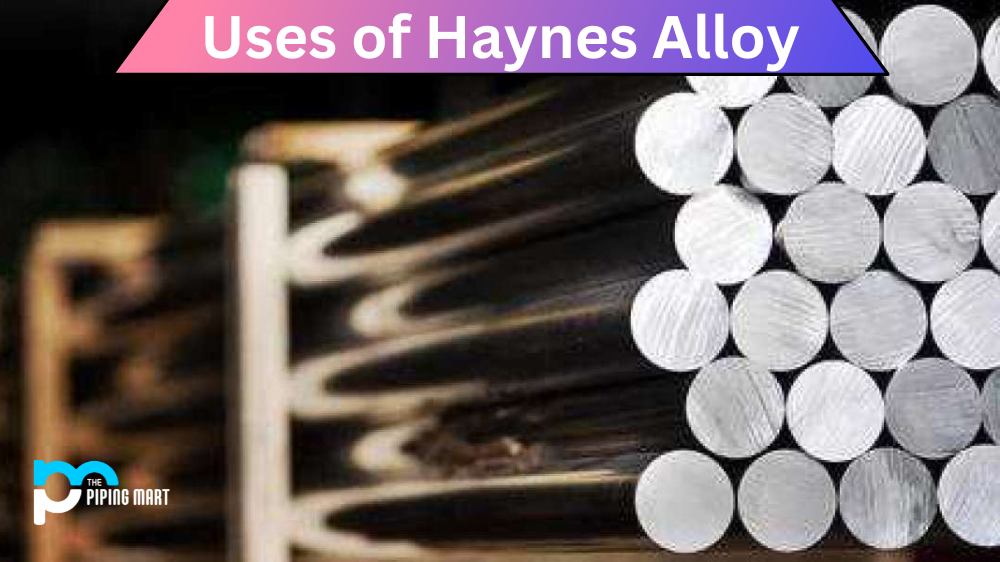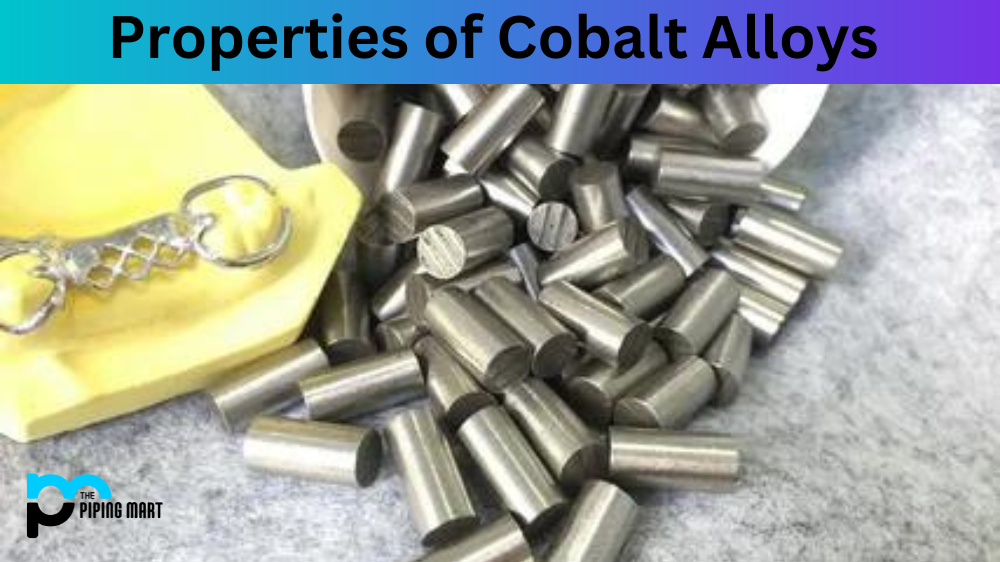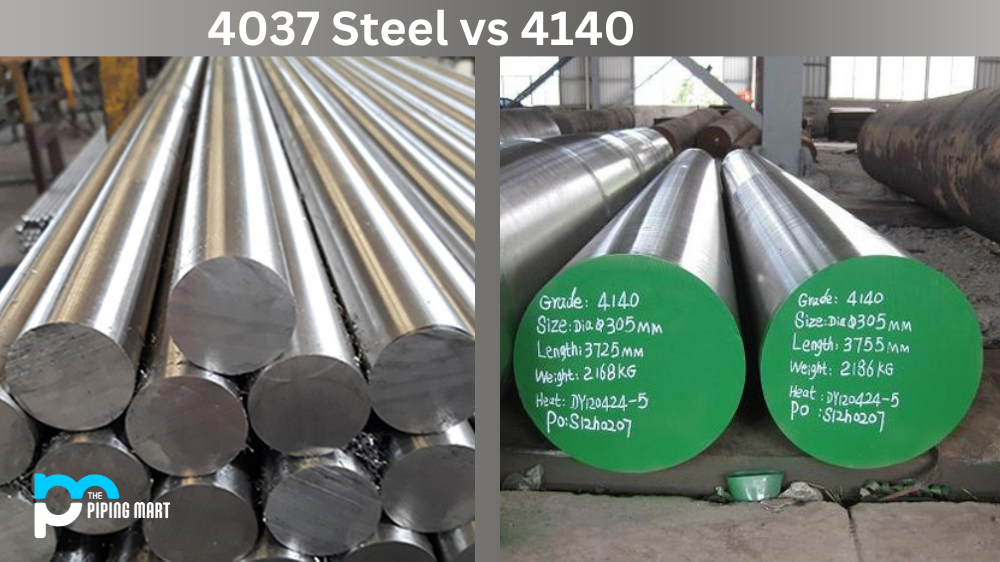Haynes alloy is an iron-based superalloy that has become increasingly popular for use in a variety of industrial applications. This alloy provides numerous benefits, such as superior strength, corrosion resistance, and temperature stability. Let’s take a closer look at why Haynes alloy is the perfect material for use in manufacturing.
Haynes alloys
Haynes alloy is an advanced cobalt-based metal alloy with rust-resistant chromium content. It has excellent resistance to thermal fatigue and to oxidation at high temperatures, making it ideal when superior durability and strength are required in extreme heat. It is usually composed of nickel, chromium, iron, and molybdenum, making it one of the more durable superalloys available. The primary uses for Haynes alloy include industrial gas turbine components such as hot section airfoils, combustion liners, and other aircraft parts that require extra resilience against corrosion and high-temperature oxidation. Its ability to resist wear, tear, and corrosion makes it a popular choice for aerospace applications across the globe.
Haynes alloy composition
Haynes alloys are essential elements in modern engineering materials due to the combination of high-temperature strength and great ductility provided by the alloy. Typically composed of cobalt and chromium, Haynes alloys can also include molybdenum, tungsten and other elements depending on their desired properties. Thanks to advancements in metallurgy, Haynes alloys can now be designed with improved oxidation resistance, corrosion resistance and creep resistance at higher temperatures. These qualities make Haynes alloys integral components for applications that require high-performance from materials such as gas turbine engines.
Haynes alloy uses
Haynes alloy is a nickel-based alloy that offers corrosion resistance and strength, making it suitable for use in a wide range of applications. It is used extensively in the aerospace industry due to its ability to resist extreme temperatures and oxidation. Haynes alloy is also popular in chemical plant equipment such as valves, seals, and furnace components because it retains its strength even when constantly exposed to corrosive or reactive media. The alloy can be fabricated easily into complex shapes and components, and it also has excellent machinability properties which make it an ideal choice for parts with small intricate details. Thanks to its combination of properties, Haynes alloy demonstrates exceptional performance in industries like power generation and petrochemical research.
Automotive industry
Haynes alloys are commonly used in the automotive industry, where they are used in exhaust systems and catalytic converters. The alloys are also used in other parts of vehicles, such as engine blocks and transmission housings.
Aerospace industry
Haynes alloys are also used in the aerospace industry, where they are used in aircraft engines and turbine blades. The alloys are also used in other parts of aircraft, such as fuselages and wings.
Chemical industry
Haynes alloys are also used in the chemical industry, where they are used in reaction vessels and heat exchangers. The alloys are also resistant to corrosion and can be used in storage tanks and piping systems.
Medical industry
Haynes alloys are also used in the medical industry, where they are used in implants and prosthetics. The alloys are also resistant to corrosion and can be used in surgical instruments.
Nuclear industry
Haynes alloys are also used in the nuclear industry, where they are used in reactor cores and fuel rods. The alloys are also resistant to radiation damage and can be used in containment vessels.
Other industries
Haynes alloys are also used in a variety of other industries, such as the food processing, textile, and paper industries.
High Strength and Durability
One of the most impressive properties of Haynes alloy is its ability to resist mechanical stress and strain. It is extremely strong and durable, making it ideal for high-stress applications such as aerospace components and turbine blades. Additionally, this alloy exhibits low creep rates even at very high temperatures, meaning it will retain its shape under extreme conditions.
Excellent Corrosion Resistance
Haynes alloy also shows excellent corrosion resistance. This makes it ideal for use in chemical processing and other corrosive environments where other alloys may not hold up. It resists oxidation at elevated temperatures, making it an excellent choice for any applications that require frequent exposure to extreme temperatures or harsh chemicals.
Temperature Stability
Haynes alloy is also widely used because of its superior temperature stability. This property allows it to maintain its integrity even when exposed to extreme temperatures for extended periods of time without losing its strength or shape. This makes it perfect for applications where high heat or cold are present, such as automotive engines or cryogenic storage containers.
- Haynes alloy is a corrosion-resistant nickel-chromium alloy that contains small amounts of tungsten, iron, cobalt, and molybdenum.
- It is used in a variety of applications where resistance to corrosion and high temperatures is required, such as aircraft exhaust systems, chemical processing equipment, and gas turbines.
- Haynes alloy is also used in the fabrication of weld overlays, which are used to protect other materials from corrosion or wear.
- The alloy has excellent resistance to both oxidizing and reducing environments, making it an ideal choice for use in many industries.
- Haynes alloy is also resistant to carburization, a process that can cause other materials to become brittle and break down over time.
- The alloy’s high melting point makes it useful for applications where high temperatures are a concern, such as in furnace linings and heat exchangers.
- Haynes alloy is non-magnetic and has good ductility, making it easy to work with and fabricate into various shapes.
- The alloy’s low coefficient of thermal expansion makes it ideal for use in precision instruments and optical devices.
- Haynes alloy is also radiation resistant, making it a good choice for use in nuclear power plants and other environments where radiation exposure is a concern.
- Haynes alloy is available in a variety of forms, including sheet, plate, bar, wire, forgings, and castings
Conclusion:
The many benefits of Haynes alloy make it an ideal material for use in various industrial manufacturing applications. Its excellent strength, corrosion resistance, and temperature stability make it the perfect choice for any application where durability and reliability are paramount. Whether you need a component that can withstand extreme temperatures or one with superior corrosion resistance, Haynes alloy can help you get the job done right every time.

Abhishek is a seasoned blogger and industry expert, sharing his insights and knowledge on various topics. With his research, Abhishek offers valuable insights and tips for professionals and enthusiasts. Follow him for expert advice on the latest trends and developments in the metal industry.




